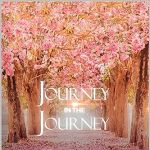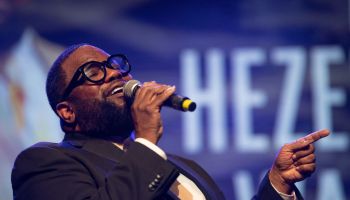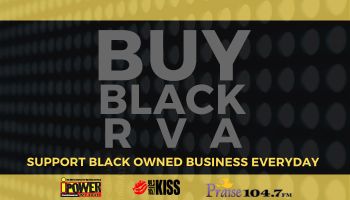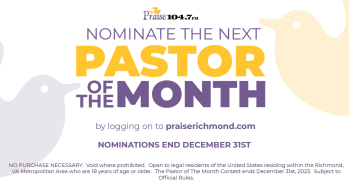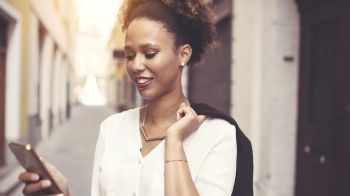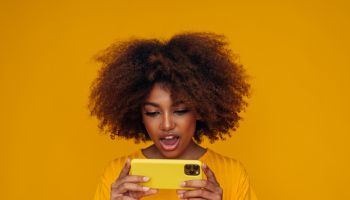This past weekend, people flocked out to the movies to see the star-studded cast of “Ocean’s 8,” the all-female sequel of the Soderbergh/Clooney franchise (which itself was a remake of the ’60 Frank Sinatra film.) Not only was it a moment because the cast included some of today’s A-list actresses and celebrities — Sandra Bullock, Cate Blanchett, Anne Hathaway, Sarah Paulson, Mindy Kaling, and Rihanna to name a few — but it was also a very touching moment for women, like me, who don’t see locs often represented in media and the big screen in positive ways.
Okay, let me back up a bit: Back in 2016, I decided I finally wanted to loc my hair up. From a historical perspective, I don’t refer to my hair as dreadlocks because there is nothing dreadful about my hair. In the context of history, Europeans were calling the hair “dreadful” when they saw the indigenous people of Eritrea with their hair as is. So no, I break that systemic notion of calling my hair dreadful when it is, in fact, beautiful.
https://www.instagram.com/p/BjfFhxPgwnV/
It was a journey not only physically, but emotionally as well in a way that I can’t verbalize and believe you just have to experience it yourself. However, now being a woman of color who works in media, who works in tech, who works in fashion and beauty, I still see there’s a discrepancy in how locs are viewed and represented. Who do you think of when you think of locs? And then how often does media strive to provide a positive representation and a well-rounded experience to educate others? I’ll wait. I understand that we have blessings like Ava DuVernay, Ledisi, Chloe x Halle, Whoopi Goldberg and other powerhouses, but it still seems that the “everyday” woman is still being looked down upon because of our hair.
In “Ocean’s 8,” Rihanna’s character Nine Ball is a badass who doesn’t take any crap. She smokes, she’s cunning, and oh yeah, she has long locs. What was impactful, to me, was the fact that Rihanna advocated for her character to have locs for this movie, understanding that this was something that needed to be seen and understood (considering the audiences watching this movie would be diverse). The film’s director Gary Ross share the initial conversation he had with Rih while at a press conference in the Metropolitan Museum of Art’s Temple of Dendur. “The first conversation she and I had was about leaning into her Caribbean roots,” he said at the conference. “We both love Bob Marley, and I mentioned dreadlocks and she jumped up and down. Then we decided on a green army jacket draped over her. This is just different than Rihanna gets to be in most her public appearances, and she really loved all that.”
Even her stylist, Yusef Williams, openly discussed Rihanna’s request to wear her locs with Refinery29, “I think the one thing she probably cared about the most was her hair. When people have locs, it’s kind of like their crown. It’s their pride and joy. It’s like a flower… you gotta nourish it and watch it grow. Hair played a really big part in who Nine Ball came to be,” he told the publication. He added, “Her locs would maintain that tie to Africa. She’d keep her accent. She wasn’t just going to be some American girl in this movie. Nine Ball is still a Caribbean girl that just happens to be in America”. And if that’s ain’t the truth y’all…whew.
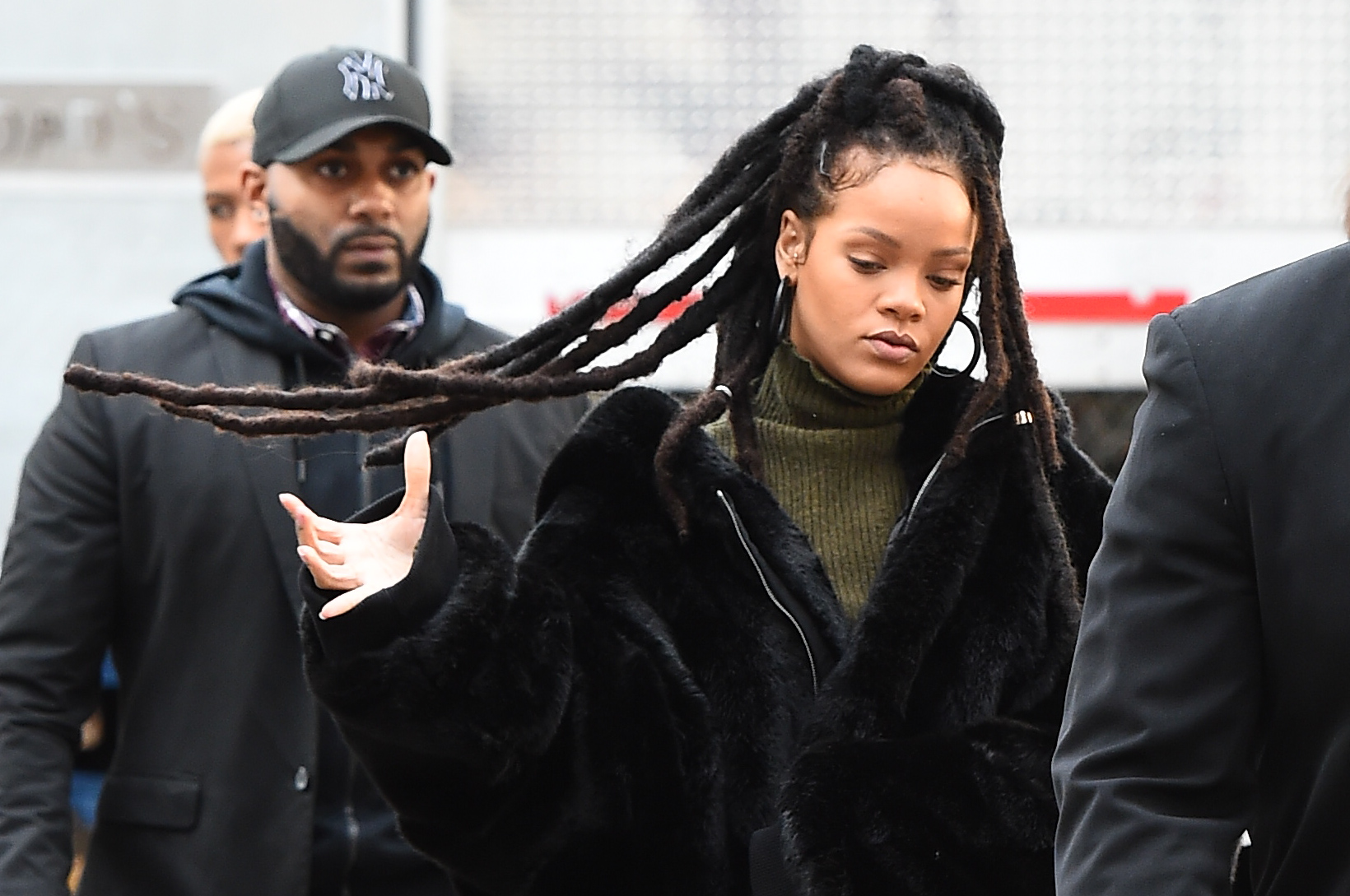
Source: Raymond Hall / Getty
Locs are not just a hairstyle, but it truly a way of life. To see a woman be unapologetically herself on the big screen, adamantly advocating for a hairstyle that is rooted within the heart of Africa and African culture, was beautiful to me. So often we can feel like we are still not seen or appreciated, not just in media but in general. Many people with locs get stigmatized in a negative way; indirectly, we become byproducts of a society that doesn’t even understand locs nor care to educate themselves. Seeing Rihanna embrace her roots as well as have a hairstyle that society oftentimes looks down upon made me feel seen, made me continue to feel validated. And no, it’s not always about having someone brown, or someone thick, or someone with locs, on the big screen. But it’s about seeing someone who gets to freely live in their own identity and not be questioned, judged, discriminated against, or omitted from the convo. Nope, we’re here front and center. Also, Rih’s hair wasn’t primp and proper and shiny — she gave an accurate scope of our hair and how it moves and breathes while in locs: pure kinky magic. She came to the screen like “I AM HERE,” and honestly, that’s a mindset we all need to take note of.
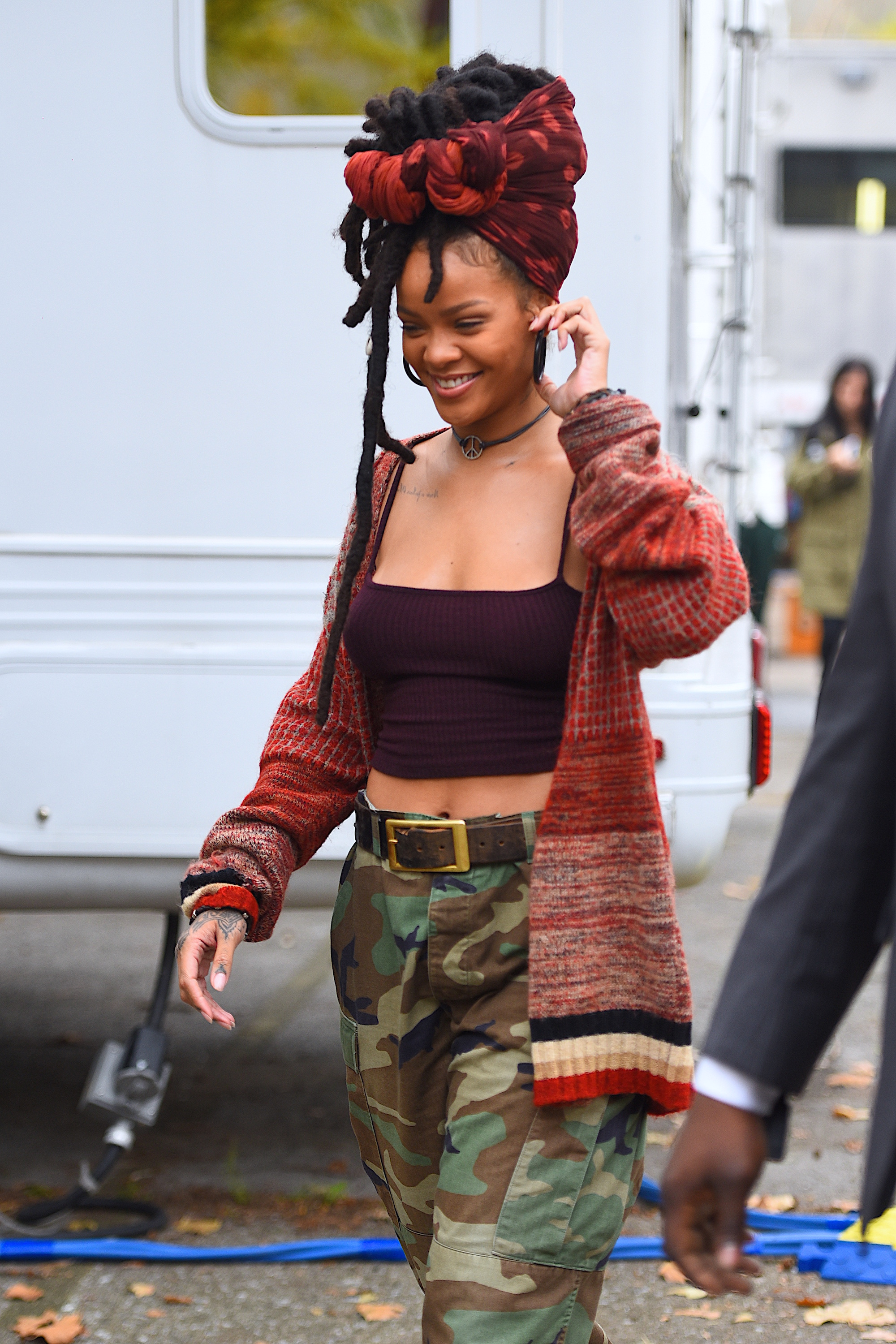
Source: Robert Kamau / Getty
In the long run, I hope that seeing a woman with locs won’t be such an anomaly. Whether on the big screen, on magazine covers, in all avenues of career, and just life in general, all people should be involved and seen and acknowledged. People from all walks of life should be equally viewed in this bigger conversation, and most importantly, have a say in shifting the conversation when needed. Maybe by seeing Rihanna advocate for a character that felt authentic to her, directors will continue to push the needle of diversifying casts with characters that represent people from everywhere.
DON’T MISS:
43 Wakanda Inspired Hairstyles To Help You Slay The Movie Theater This Weekend
Tell Your Faves To Take Notes: 12 Times Rihanna Publicly Supported Other Black Women
How Rihanna’s Locs In “Ocean’s 8” Promoted Visibility And Proved To Be Anything But ‘Dreadful’ was originally published on hellobeautiful.com






